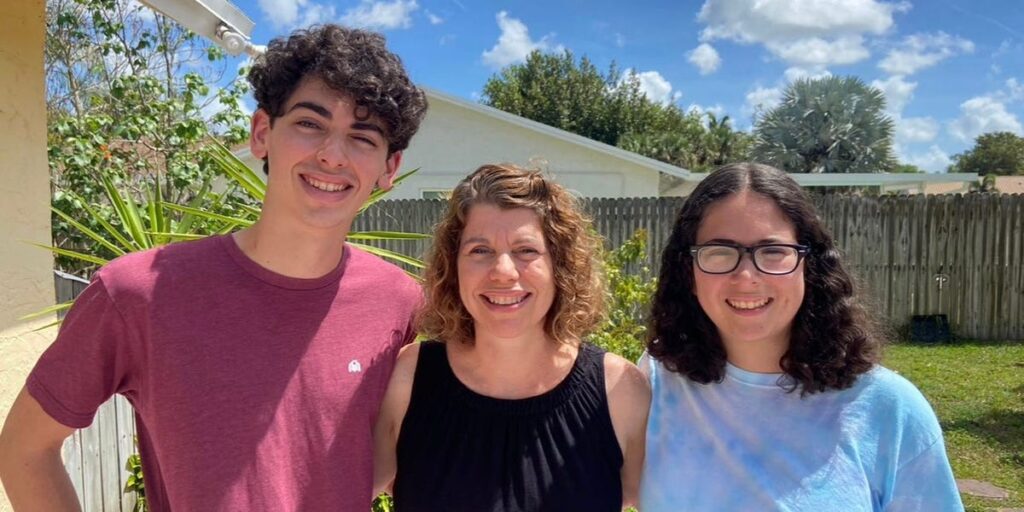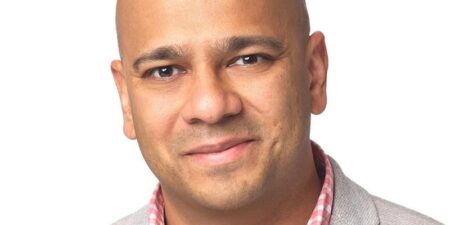At the height of the pandemic, I found myself rummaging through the last drawer of the dining room sideboard, desperate to find the velvet pouch that housed my mother’s heirloom silverware.
I’d tucked it away years ago, knowing the formal cutlery would never be used, but safeguarding it to eventually pass on to my children. It was the only thing I had that belonged to my mother’s parents, and while I felt a surge of relief when my fingertips brushed against the soft fabric, my heart sank.
Selling it to help cover the bills that month did not align with the happily-ever-after story I’d imagined for myself.
I was told I could have it all
I grew up in the ’70s and ’80s, a time when women were told they could have it all — careers, families, independence. I even attended a progressive women’s liberal arts college in the heart of New York City known for shaping fearless, independent thinkers and trailblazers. But when motherhood came knocking, I chose to bypass the workforce and stay home, much like the baby boomers before me.
Now 54, I can still remember the confidence I had at 28 when I made that decision. My husband’s career in the gaming industry was booming — he was landing casino clients left and right and traveling the world to close deals. We both weren’t good at tracking money, but at the time, it didn’t seem to matter. Money was coming in, enough to pay the bills and even buy the modest suburban home we’d been renting. Before I knew it, I was immersed in the daily joys and demands of raising our two children.
I devoted myself to motherhood
I was busy shuttling the kids to doctor appointments and after-school events, and holding down a full-time job felt out of reach. Ever the optimist, my husband assured me that a bright future lay ahead, and I chose to believe him.
I devoted myself fully to motherhood. I embraced the role with zeal: I joined the PTA, volunteered as a room parent, baked cookies, and poured everything I had into my children’s growth and well-being. Watching my daughter take her first steps or seeing my son’s wide grin as he learned to whistle are moments I cherish deeply and may have missed in a 9-to-5 job.
The privilege of being fully present played a critical role in their transition to adulthood, but it’s undeniable that it came at a cost.
We struggled financially
My husband’s long-winded optimism started to feel like a wall between us when we started struggling financially.
Our rift grew as his financial support became increasingly unreliable. I quietly opened a separate checking account and doubled down on my freelance writing, taking on any assignment I could to keep us afloat.
I got very little for the silverware. Though it held deep sentimental value, silver isn’t worth much. The appraiser who relayed this information to me said it gently. I wasn’t the first to come to him in hard times, he told me, and he genuinely hoped I’d find my way out of them.
I went back to work 5 years ago
It’s been five years since I returned to the workforce full-time, taking a job that not only became a financial lifeline but turned out to be deeply fulfilling.
My husband, now 67, takes whatever jobs he can find as a handyman. Daily life can be hard.
We’re slowly working our way out of the debt we accumulated over the years, with the hope of someday building even modest savings. But the strain of those past choices still lingers. The topic of our finances remains highly contentious, and the tension it creates has, at times, pushed our marriage to the brink, even with our 30th wedding anniversary on the horizon.
I don’t regret staying home with my kids, but I do regret assuming everything else would take care of itself. If there’s one thing I’ve learned, it’s that even in the most beautiful stories, you have to be your own safety net.
Read the full article here
















